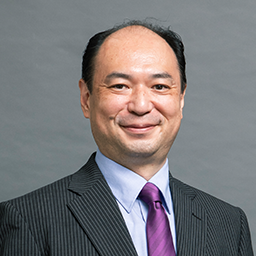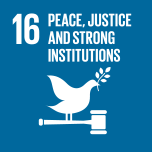Associate Professor
Ph.D. in Social Sciences (University of Leuven,Belgium)
Office’╝Ü Room 416
E-mail’╝Üyasutomi@eikei.ac.jp
Office Hours’╝Ü By appointment
Academics
AcademicsFaculty Information
YASUTOMI Atsushi

Profile
Graduated from Department of Comparative Culture, Sophia University. Received Ph.D. from Katholieke Universiteit Leuven (University of Leuven, Belgium). YasutomiŌĆÖs earlier positions include: Researcher at Embassy of Japan in Bulgaria, field and station officer in international NGOs, Senior Researcher at Research Institute for Peace and Security (RIPS), associate professor at Miyazaki International College.
Academic Field / Expertise
Security studies, peace studies
Courses to Offer
Introduction to International Cooperation and Security
Peace Studies
Message
We are witnessing wars, conflicts and other forms of violence depriving peopleŌĆÖs wealth, health, and education in various parts of the world today. Why do wars and conflicts occur, and how do we prevent them from recurring? How do we end wars? How can we make peace in our world? ŌĆö Scholars, religious leaders, politicians, practitioners, students, and the like, have asked these simple but very difficult questions for centuries. At Eikei University of Hiroshima, we will seek answers for these important questions collaboratively. I am very much looking forward to finding some keys to solve these questions together.
Summary of the Research Undertaken
One of my major research topics is peacebuilding in post-conflict states, focusing on specific issues such as community policing, and communication between community residents and irregular forces. Another research topic goes to a study on public support towards military operations abroad and how that shapes defence and security policies in the new democratic states in Southeast Asia and beyond.
Research Themes
- Peacebuilding in post-conflict states and newly democratised states
- Security Sector Reform and Governance (SSRG)
- Civil-military relations, civil-military cooperation
- Community policing and community security in post-conflict states / new democracies
- Behaviours of irregular forces, militias, gang groups, and vigilantes in local communities in post-conflict states
- Treatment of deaths of soldiers and war casualties
Details of the Research
My approach to research in post-conflict peacebuilding is multi-disciplinary. Currently, my specific research targets are armed forces, police forces and irregular forces (e.g. militias, gangs, and vigilantes). In many post-conflict states, irregular forces are often treated as spoilers to peace processes since they tend to be extra-legal, violence-based organisations that interrupt ongoing peace talks. However, a careful examination also demonstrates that irregular forces often collaborate with community members and jointly function as security guarantors in the absence of legitimate functioning police forces in the region. I focus on such collaborative behaviours of irregular forces in various states in Southeast Asia and Latin America.
List of Papers
- ŌĆ£When Soldiers Speak Out against Their Own Military: A Study of Non-Academic Books Published by Retired Japanese OfficersŌĆØ, Res Militaris, Vol. 10, No. 1, 2020.
- ŃĆīńĀöń®ČŃāÄŃā╝Ńāł’╝ÜĶ╗ŹķÜŖŃü«µĄĘÕż¢µ┤ŠķüŻµÖéŃü½ŃüŖŃüæŃéŗµ«ēĶüĘĶĆģŃü«µē▒Ńüä ŌĆĢ ŃāēŃéżŃāäķĆŻķé”Ķ╗ŹŃü«õ║ŗõŠŗŃüŗŃéēŃĆŹŃĆÄķś▓ĶĪøÕŁ”ńĀöń®ČŃĆÅń¼¼61ÕÅĘŃĆü2019Õ╣┤ŃĆü9ŌłÆ27ķĀüŃĆé
- ŃĆīŃé│Ńā¤ŃāźŃāŗŃāåŃéŻŃā╗ŃāØŃā¬ŃéĘŃā│Ńé░Ńü«Ķä▒Ķź┐µ¼¦Õī¢’╝ÜŃāēŃāŖŃā╝Ńü»µŁ”ĶŻģķøåÕøŻŃéÆŃü®Ńü«ŃéłŃüåŃü½µē▒ŃüåŃü╣ŃüŹŃüŗŃĆŹ’╝łÕģ▒ĶæŚ’╝ēŃĆÄÕøĮķÜøÕŹöÕŖøĶ½¢ķøåŃĆÅń¼¼26ÕĘ╗ń¼¼1ÕÅĘŃĆü2018Õ╣┤ŃĆü75-99ķĀüŃĆé
- ŌĆ£Civil-Military Cooperation Strategy for Disaster Relief in Japan - Missing in Disaster PreparednessŌĆØ (Co-authored), Liaison, Vol. 7, Center for Excellency, US Pacific Command, Spring 2017.
Books and Other Publications
- ŃĆīµŖĆĶĪōķØ®µ¢░Ńü©Ķ╗ŹŃü«µ¢ćÕī¢Ńü«ÕżēÕ«╣ŃĆŹIn:ķüōõĖŗÕŠ│µłÉ’╝łńĘ©ĶæŚ’╝ēŃĆÄŃĆīµŖĆĶĪōŃĆŹŃüīÕżēŃüłŃéŗµł”õ║ēŃü©Õ╣│ÕÆīŃĆÅĶŖÖĶōēµøĖµł┐Õć║ńēłŃĆü2018Õ╣┤9µ£ł’╝łISBN978-4-8295-0743-8’╝ē
- ŃĆīĶć¬ńäČńüĮÕ«│Ńü½ŃüŖŃüæŃéŗĶć¬ĶĪøķÜŖŃü«ķé”õ║║Ķ╝ĖķĆüŃĆŹIn:ńēćÕ▒▒ĶŻĢ’╝łńĘ©ĶæŚ’╝ēŃĆÄķś▓ńüĮŃéÆŃéüŃüÉŃéŗÕøĮķÜøÕŹöÕŖøŃü«ŃüéŃéŖŃüŗŃü¤ŃĆÅŃā¤ŃāŹŃā½Ńā┤ŃéĪµøĖµł┐ŃĆü2017Õ╣┤7µ£ł’╝łISBN978-4-623-08063-2’╝ē
- ŃĆīŃü¬Ńü£ķĆŻµÉ║ŃüÖŃéŗŃü«ŃüŗŃĆŹIn:õĖŖµØēÕŗćÕÅĖŃā╗ĶŚżķćŹÕŹÜńŠÄŃā╗ÕÉēÕ┤Äń¤źÕģĖŃā╗µ£¼ÕżÜÕĆ½ÕĮ¼’╝łńĘ©ĶæŚ’╝ēŃĆÄõĖ¢ńĢīŃü½ÕÉæŃüæŃü¤Ńé¬Ńā╝Ńā½ŃéĖŃāŻŃāæŃā│ŃĆÅÕåģÕż¢Õć║ńēłŃĆü2016Õ╣┤4µ£ł’╝łISBN978-4-905285-57-1’╝ē
Key Words of the Research
International Security, Peacebuilding, International Cooperation, Security Sector Reform, Military, Police, Community Security, Criminal Groups, Non-governmental Organisations


